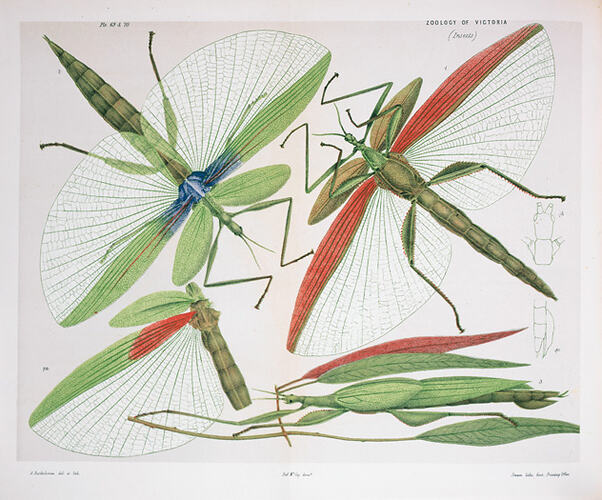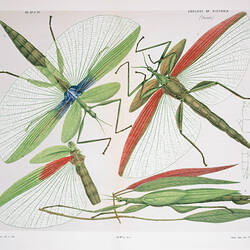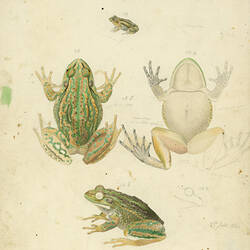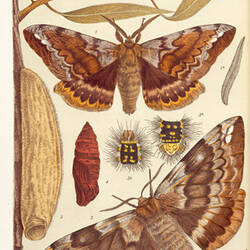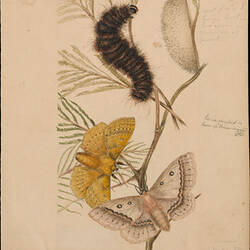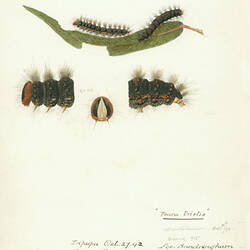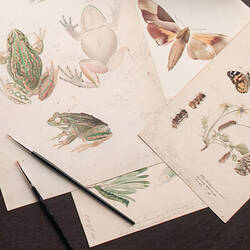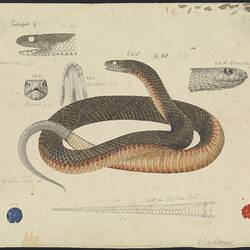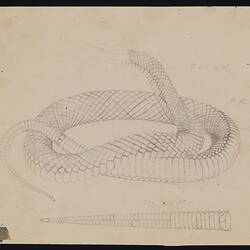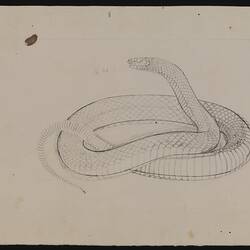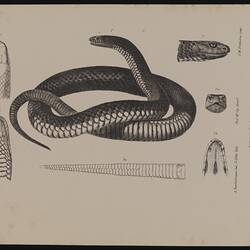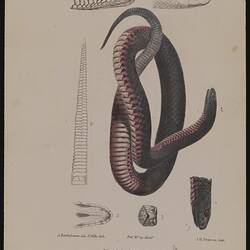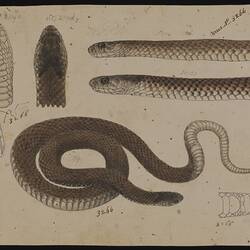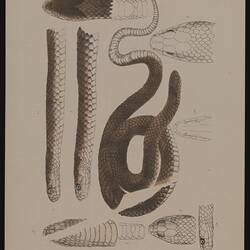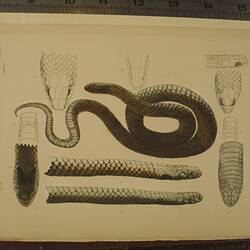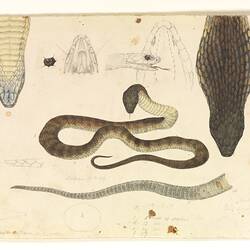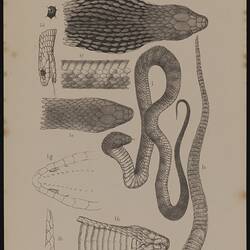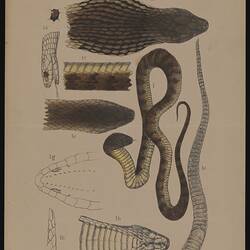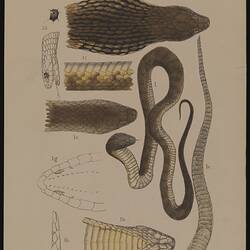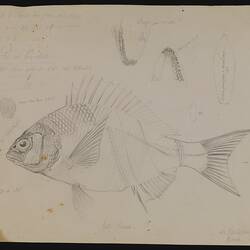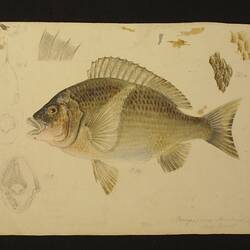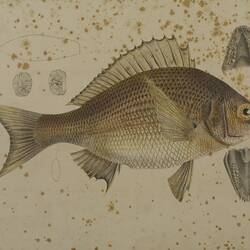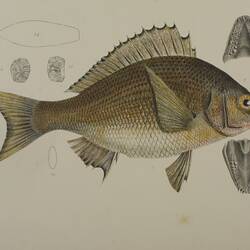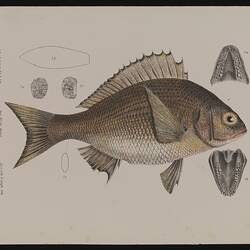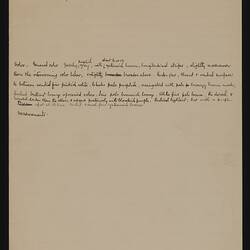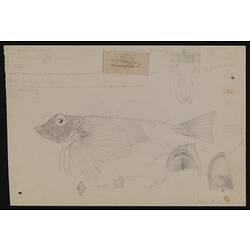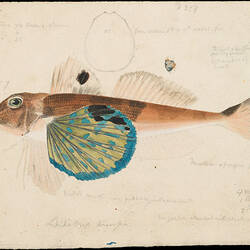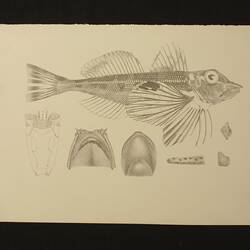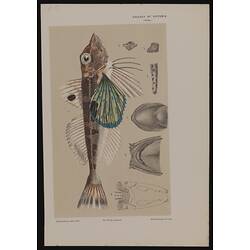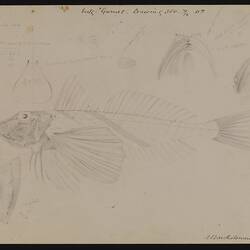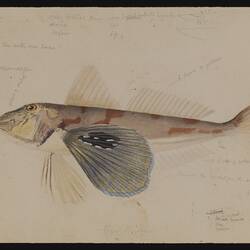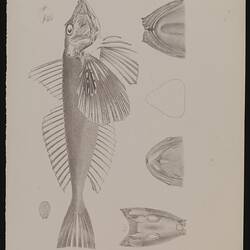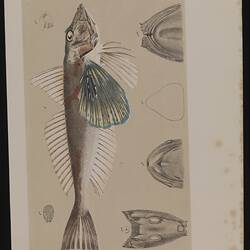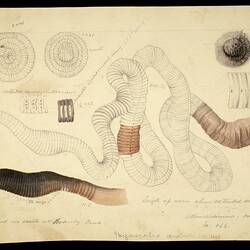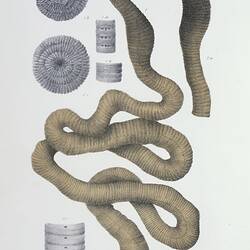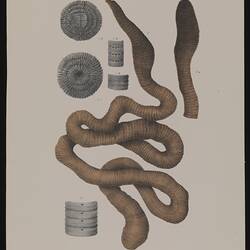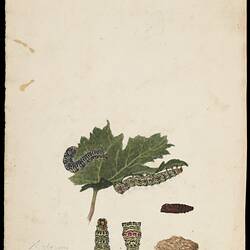The son of Thomas Bartholomew, a decorator, Arthur Bartholomew was born in Bruton, Somerset shire, in 1834.
Although little is known about his early life, Bartholomew apprenticed as an engraver in Exeter and had some lithographic training before leaving for Australia in 1852 at 18 years of age. Arriving in Melbourne on the Oriental, in December that year he set off to explore the bush before sailing to Tasmania, where he met his future wife, Eliza Ann Nicholls.
He soon returned to Melbourne to assist William Blandowski in illustrating specimens for his encyclopedia on the natural history of Australia. When Blandowski set off on an expedition on the Murray River, Bartholomew remained in Melbourne.
With Blandowski in self-imposed exile following his conflict with fellow members of the Philosophical Institute, Bartholomew returned to Longford, Tasmania, marrying Eliza in 1856. They had two children in quick succession, Christianna (1857) and Adelina (1858), before returning to Melbourne where Arthur took up the position which defined his professional career.
On 1 September 1859 Bartholomew was appointed Attendant in the department of Natural History at the newly-opened Melbourne University. For the next six months he attended McCoy's lectures and assisted in the laboratory, his role expanding in 1860 to take advantage of his artistic ability. McCoy obviously saw Bartholomew's potential for the ambitious projects which lay ahead.
Bartholomew began both a zoological and geology series for McCoy which would form the basis of the Prodromus of the Zoology of Victoria and Prodromus of the Palaeontology of Victoria. During the following four decades he illustrated more than 700 zoological specimens, along with an as-yet undocumented number of palaeontology and geological specimens. He also produced instructive teaching diagrams for the medical department.
Along with his duties as McCoy's assistant, he also transferred many drawings, both his own and those of other artists, onto stone for the production of lithographs.
His original illustrations are held by Museums Victoria, Melbourne and Museum für Naturkunde, Berlin, it is believed none of his work for the Systems Garden, or the Medical School remain.
More Information
-
Keywords
-
Authors
-
Article types
